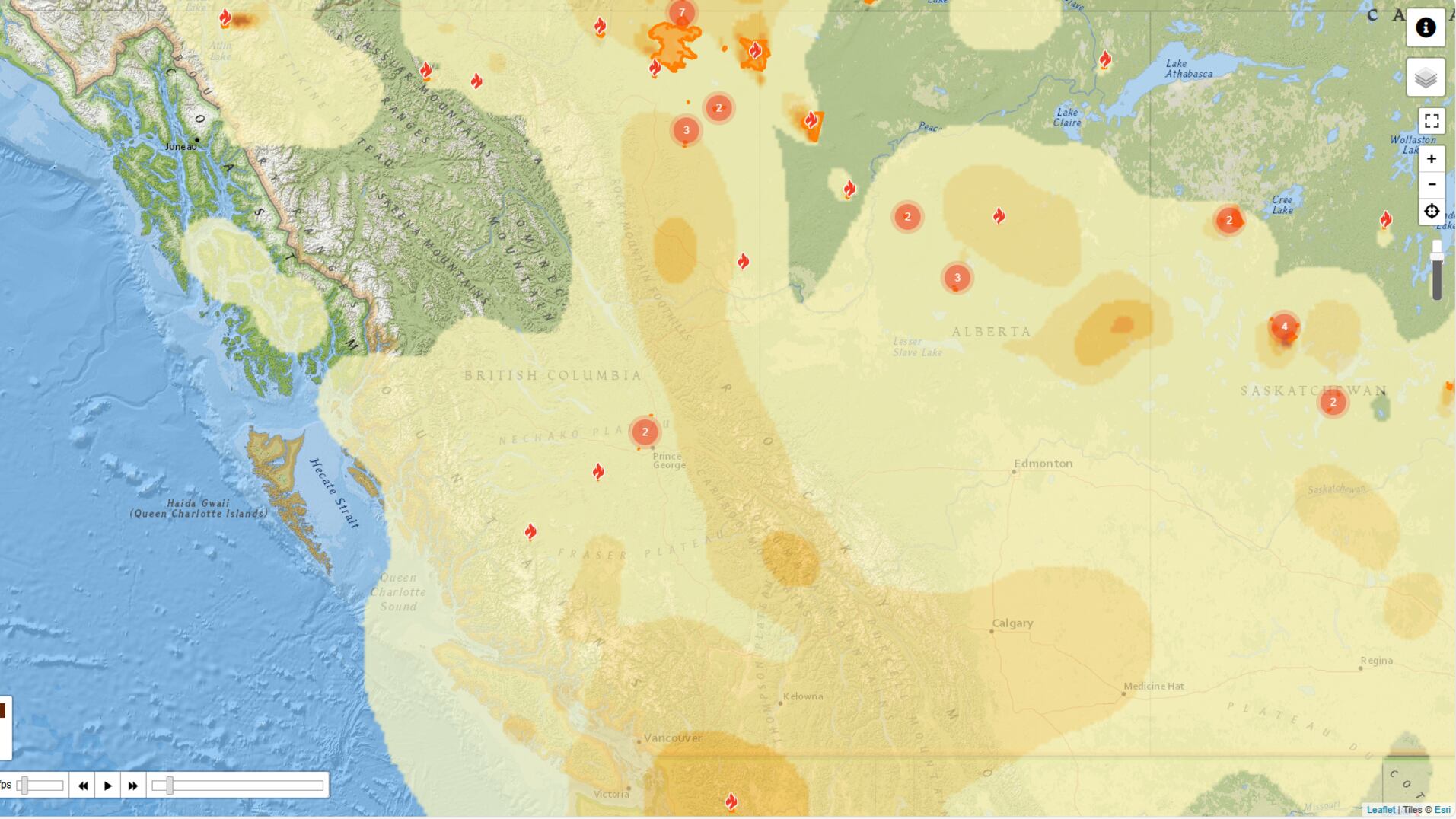A special air quality warning is in effect for parts of the Northwest and BC.
The warning, which began Saturday and was extended in the area on Sunday, the province says is likely to be in effect over the next 24-48 hours.
Smoke may be visible across the northeast and central regions of the province.
They say that during a wildfire, smoke conditions can change quickly over short distances and can vary considerably hour-by-hour.
The province recommends citizens monitor the situation for any wildfires near your area at EmergencyInfoBC. Follow all emergency announcements relevant to your location.
- During smoky conditions, the province recommends that we stop or reduce activity levels if breathing becomes uncomfortable or you feel unwell.
- Stay cool and drink plenty of fluids.
- Carry any rescue medications with you at all times.
- Make sure that children and others who cannot care for themselves follow the same advice.
They also recommend monitoring symptoms;
- Different people have different responses to smoke.
- Mild irritation and discomfort such as eye, nose and throat irritation, headaches or a mild cough are common, and usually disappear when the smoke clears.
- More serious but less common symptoms include wheezing, chest pains or severe cough.
- People with asthma or other chronic illness should follow any personal care plans designed with their family physicians.
- If you are unsure whether you need medical care, call HealthLink BC at 8-1-1.
- If you are experiencing difficulty in breathing, chest pain or discomfort, or a severe cough, contact your physician, walk-in clinic, or emergency department. If you are having a medical emergency, call 9-1-1.
And these are their tips to reduce your smoke exposure;
- Smoke levels may be lower indoors but will still be elevated, so stay aware of your symptoms even when you are indoors.
- When indoors, keep windows and doors closed as much as possible.
- When there is an extreme heat event occurring with poor air quality, prioritize keeping cool.
- Protect your indoor air from wildfire smoke. Actions can include using a clean, good quality air filter in your ventilation system and/or a certified portable air cleaner that can filter fine particles.
- If you must spend time outdoors, a well-constructed, well-fitting and properly worn respirator type mask (such as a NIOSH-certified N95 or equivalent respirator) can reduce your exposure to the fine particles in the smoke. Even though exposure may be reduced, there can still be risks to health.
- Check on others who are in your care or live nearby who may be more likely to be impacted by wildfire smoke.
- Always follow guidance from local authorities.
In the Northwest, areas affected include Bulkley Valley: includes Hazelton, Smithers, Telkwa, and Granisle, Lakes District: includes Houston, Topley, Burns Lake, and Endako., North Coast Inland Sections, includes Kitimat. North Coast Inland (South): includes Terrace.
Firesmoke Canada is a great resource to monitor Wildfire smoke forecasts. More information is also available on the Air Quality Health Index, Air Quality Map , and Environment and Climate Change Canada FireWork
